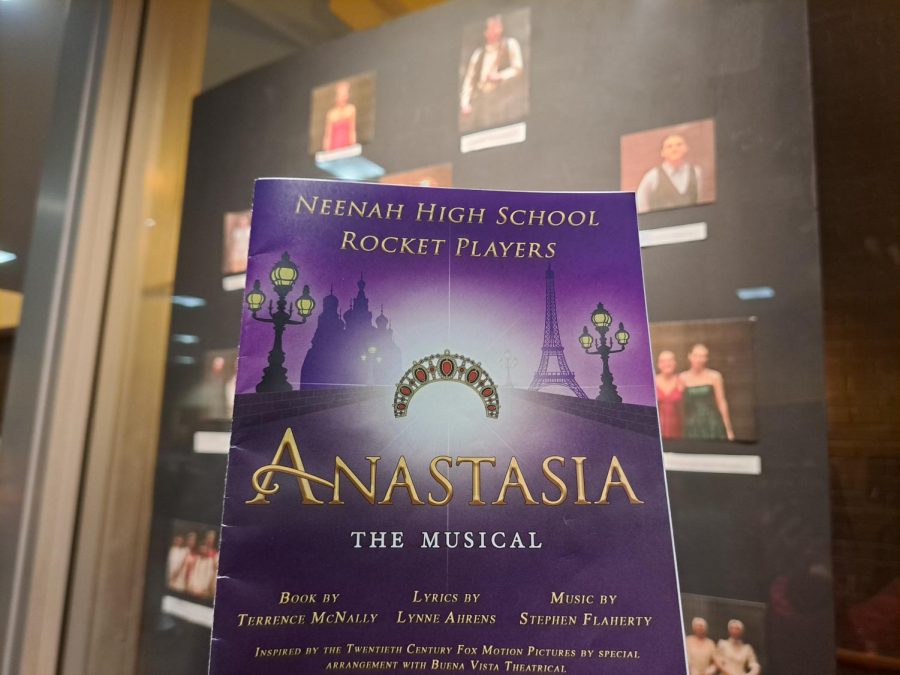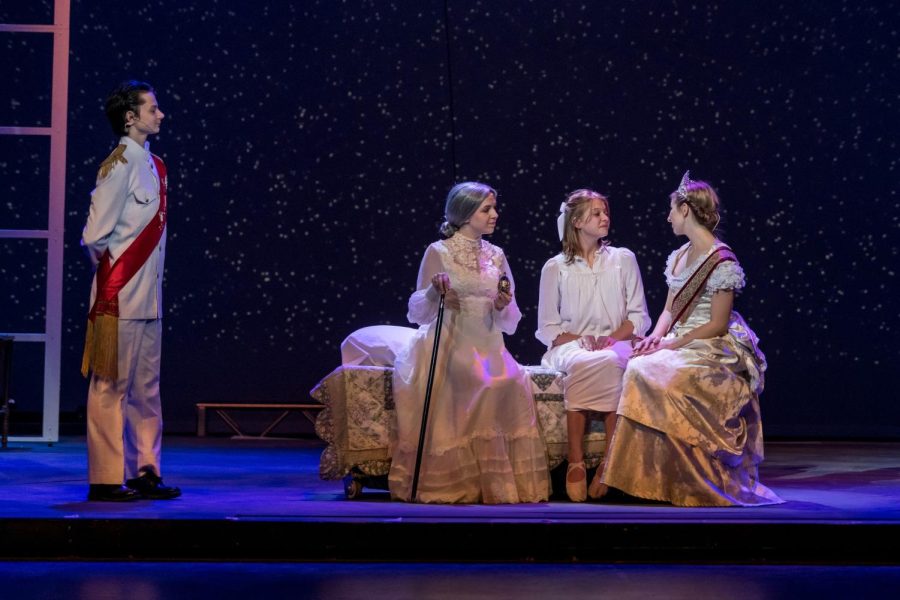Review: Anastasia Royally Concludes Pickard’s History of Fall Musicals
Photo by: Robert Barthell
A booklet for Anastasia is pictured in Pickard Lobby in Neenah, Wisconsin on Oct. 14, 2022. Anastasia, the final fall musical on Pickard stage, has two more showings; Saturday, Oct. 15 at 7 p.m. and Sunday, Oct. 16 at 2 p.m.
October 15, 2022
After 50 years of Pickard stage being the home of the fall musical, this is the one that wraps everything up. This was Anastasia, an alternate history tale regarding a certain individual of the Imperial Russian royal family who was the subject of many impostors throughout much of the 20th century.
In this play, we saw a young adult version of the duchess wandering the streets of St. Petersburg (or, Leningrad) struggling with apparent memory loss. She meets Dmitri and Vlad, two con artists in it to make money as the three travel to Paris in an attempt to connect with the last living relatives of the Romanov family.
Certainly, the Russia in the news today bears little in common with that of 95 years ago. Subtle references to the stark economic inequality of the imperial era as well as the intellectually oppressive nature of the early Soviet Union exist throughout the play. But in many cases, these same ideals were glorified and their negative consequences swept under the rug.
There also seemed to be some issues related to naming. Though St. Petersburg was appropriately changed to “Leningrad” after the time jump to the Soviet Era, Russia, incorrectly, continued to be — Russia. In reality, the same Bolshevik armies that killed Anastasia’s family effectively renamed the country to the Union of Soviet Socialist Republics, known more colloquialy as the Soviets. Furthermore, under Eastern European naming conventions, the same last name is spelled differently for men and women — the female suffix being irregular but in this case necessitating the usage of “Romanovna” when addressing the titular character. As someone who likes learning languages, I appreciate a show that makes me think.
But I digress, the production quality of the show was, in fact, rather good. A pit orchestra of 18 players accompanied the entire thing, with a live screen of orchestra teacher Mr. Philip Smyth waving his baton in the back again. The dialogue and sound effects balanced the spectacle.
Instead of physical backdrops, Anastasia relied on projection, which meant that the performance was complemented by moving videos in the background; these were helpful in sections such as the train scene as well as simulating the Eiffel Tower’s elevator. But this also meant that the curtains never closed throughout the show, making the audience aware of stage movement and prop changes in live theatre.
Overall, the main actors were polished. They were able to portray a multitude of emotions in a convincing manner, and the singing was in-tune with the choreography. I was, though, taken aback by multiple passionate kissing scenes. But the questionable content largely ends there, there is not much else that would stop me from taking young kids to see this. Kudos to multi-generational community theatre appeal!
In observation of the crowd, I stepped in for the second half on Thursday and watched the whole on Friday, and Pickard was almost completely packed both times; tickets were flexible and not assigned to any particular seat, and it looked like they were about to open the balcony based on attendance at Rocket Players final musical on Pickard stage.
Anastasia has two more showings; Saturday, Oct. 15 at 7 p.m. and Sunday, Oct. 16 at 2 p.m.




Avyn Strauch • Oct 18, 2022 at 12:47 PM
If this is supposed to be a review of the NHS production, shouldnt the criticism be constructive? Why complain about things they cant change? Their not allowed to change the plot or characters. How is it a review of the NHS production when all you do is Summarize the plot and complain about the pronouns and pronunciations. Theres nothing constructive about criticizing the elements the cast and crew cant change. Along with the pronouns and pronunciations, should they also have spoken in russian accents? or better yet, performed the show in russian? Its foolish to expect this, and if you do, take it up with the people who wrote the show.